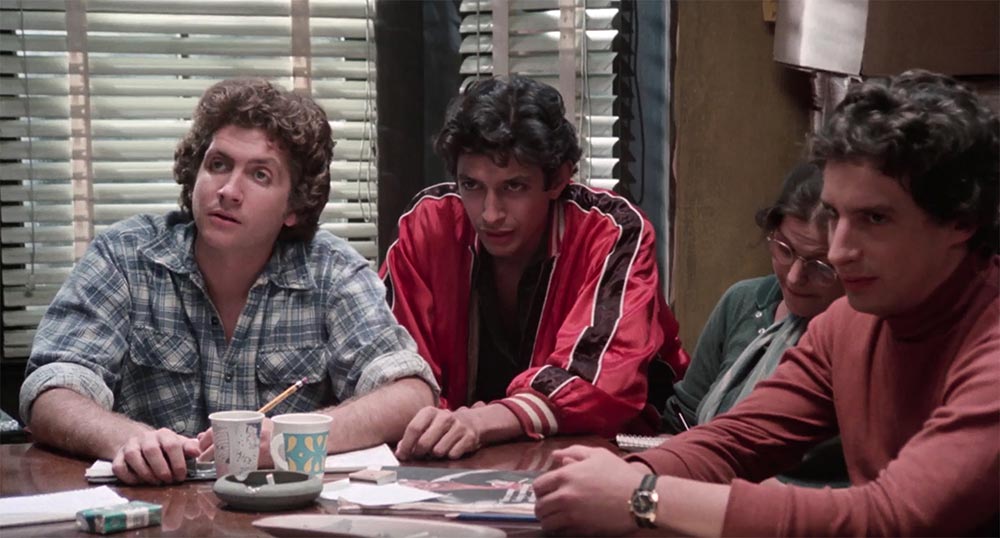It’s almost fifty years since the release of Joan Micklin Silver’s Between the Lines (1977), a bellwether of the dark days that were to come for journalists and media workers more broadly. Following her 1975 debut film Hester Street, Silver, along with screenwriter Fred Barron, mined their experiences working for independent papers (Silver for the Village Voice and Barron for the Boston Phoenix) to create a portrait of a scrappy alt-weekly past its prime.
The employees at the fictional Boston paper Back Bay Mainline wax poetic about their younger years breaking stories and acting as the journalistic backbone of a counterculture that by 1977 has mostly grown up and petered out. “We were dangerous then,” muses Harry, a once-fiery investigative reporter played by John Heard in his film debut. His years of doggedly exposing local corruption have left him burned out and disillusioned, his passion for the work that once defined him dwindling. His on-again-off-again girlfriend Abbie (Lindsay Crouse), meanwhile, is beginning to come into her own as a photojournalist and is trying to keep the former fiery spirit of the paper alive. Michael (Stephen Collins) barely steps foot in the office anymore while attempting to sell a book about the death of counterculture. His girlfriend, Laura (Gwen Welles), a fellow writer at the paper, is struggling with whether or not to follow her self-involved partner to New York in pursuit of a more mainstream writing career. The ensemble cast is rounded out with some great comedic performances, most notably by a young Jeff Goldblum as grifter-cum-music-critic Max, who sells advance copies of LPs he receives from labels and woos women with his offbeat charm and pop-cultural pontificating.
Looming over their interpersonal and professional dramas is a potential corporate buyout that threatens to cost the characters their integrity, at the very least, if not their jobs. (Rupert Murdoch had purchased the Village Voice for $16 million only three months before the film’s release.) We feel the squeeze on independent journalism in the office space and on the literal page, as stories are edited down or cut entirely to make room for more ads. While the subgenre of “journalism film” typically centers on the pursuit of an important story, it seems that the characters in Between the Lines no longer have the financial support, nor the energy, to do any of that. The film portrays a specific moment in time for the alt-weekly, but this is a story that has continued to repeat itself over and over in the media world. And in many respects, it's one that also rings true for the independent-film landscape in which Silver was working. The director is first and foremost concerned with the personal, however; her characters’ internal and relational struggles sympathetically capture the identity crises faced by recovering idealists in a culture that’s shifting under their feet.
Between the Lines screens today and tomorrow, April 15 and 16, at Metrograph.



